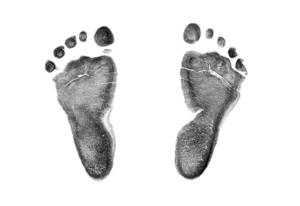Almost every country criminalises abortion in some circumstances
134 penalise abortion seekers; 181 abortion providers; and 159 people assisting
Almost all countries around the globe criminalise abortion in some circumstances, despite the public health risks and impact on human rights, finds a review of the scope of penalties for the procedure in 182 nations, published in the open access journal BMJ Global Health.
Some 134 countries penalise those seeking an abortion, while 181 penalise providers, and 159 those who assist in the procedure, the review shows.
The evidence indicates that criminalisation doesn’t deter women from deciding to have an abortion; rather, it limits or delays access to safe abortion and increases the need to turn to unsafe and unregulated services, point out the researchers.
Criminalisation also helps erode the availability of trained abortion providers and relevant skills in the health workforce, they add.
To find out the extent of criminal penalties for seeking, providing, and assisting with abortions around the world, the researchers drew on data up to October 2022 from the Global Abortion Policies Database (GAPD), which covers UN member states.
Nine countries were excluded from the review because the regulation of abortion isn’t uniform in different jurisdictions: Nigeria; Bosnia; the UK; Mexico; USA; Australia; China; Switzerland; and Canada.
Analysis of the data showed that in 163 countries, the definition of, and penalties for, abortion-related offences are contained in the general penal code. In 12 countries, the offences and penalties are found in abortion-specific laws; in 8 they are found in other types of legal sources, such as health codes, reproductive health laws, and laws about children.
In 11 countries, abortion is completely criminalised and prohibited in all circumstances, but the procedure is criminalised in some circumstances in most of the remainder.
In 134, the person seeking the abortion is penalised; in 181, it’s the providers; and in 159, those who assist in access or provision are subject to criminal penalties.
The range of penalties that people convicted of abortion-related offences can face is wide, although fines and imprisonment are the most common.
In 91 countries, the maximum penalty for those seeking a termination is up to 5 years of imprisonment for a consensual abortion, where no aggravating factors apply. In 25 countries, the maximum penalty is between 5 and 10 years, and between 10 years and life imprisonment in Equatorial Guinea and Zambia. In Kiribati, Solomon Islands, Tuvalu, Barbados, Belize, Jamaica a person seeking an abortion can be imprisoned for life; 48 countries impose fines.
While in some countries, fines can be imposed as an alternative to prison, in most, fines can be imposed in addition to a prison sentence. Similar punishments apply to providers.
Where aggravating factors apply, such as a death, young age, withheld consent, the maximum prison sentence for providers can be 20 or more years in Algeria, Burundi, Malaysia, Mali, Morocco, Sri Lanka, Thailand, Ivory Coast and Turkey, and life imprisonment in Benin, Burkina Faso, Rwanda, Singapore, South Sudan and India.
Seventy-six countries fine abortion providers. Forty-eight apply professional sanctions which include: seizure or forfeiture of equipment; demotion; closure of establishments; official warnings; termination of employment; suspension from practice; suspension of qualifications; and a total ban on working in the field again, or on holding certain posts.
For those assisting in access to, or provision of, an abortion, the maximum penalty is between 5 and 10 years’ imprisonment in 16 countries, and between 10 years and life in Benin, Democratic Republic of Congo, Ireland, Equatorial Guinea, Saint Vincent and the Grenadines. In Barbados, the maximum penalty is life imprisonment.
Fifty-nine countries impose fines for people who assist in abortions; 33 apply professional sanctions for those acting in a medical capacity, such as pharmacists and nurse counsellors.
Other penalties may apply in some countries. These include prohibitions on residence or on the exercise of ‘civic and family rights’; transportation for life; retributive justice; ‘blood money’; community service; hard labour; forced labour.
Twenty-four countries prescribe some of these penalties for providers, 15 for those who assist in abortions and 13 for those seeking an abortion.
Thirty-four restrict the dissemination of information about abortion and abortion services, even when the procedure may be legal in some circumstances.
“The sheer range of penalties that persons involved in the abortion may face, depending on where they are, support the argument that provisions criminalising abortions are arbitrary,” say the researchers.
What’s more, “Regulating abortions through the same legal instrument, and same institutional apparatus as murder, sexual assault and robbery may exacerbate the concerns associated with seeking and providing abortions when it is criminalised,” they add.
“Studies in countries where abortion has been fully or partially decriminalised have also noted several benefits to abortion seekers as a result, including access to better quality care, lower rates of maternal mortality, and increased educational attainment, career outcomes and earnings,” point out the researchers.
“International human rights law requires countries to undertake measures to reduce maternal mortality and morbidity,” they note, adding that their findings “strengthen the case for decriminalisation.”
20/03/2023
Notes for editors
Analysis: A global review of penalties for abortion related offences in 182 countries DOI 10.1136/bmjgh-2022-010405
Journal: BMJ Global Health
Funding: UNDP-UNFPA-UNICEF-WHO-World Bank Special Programme of Research, Development and Research Training in Human Reproduction (HRP)
Link to Academy of Medical Sciences press release labelling system
http://press.psprings.co.uk/
Externally peer reviewed? Yes
Evidence type: Observational
Subjects: People
Disclaimer: The views expressed in this research do not necessarily represent the decisions or policies of the UNDP-UNFPA-UNICEF-WHO-World Bank Special Programme of Research, Development and Research Training in Human Reproduction or the World Health Organization.





